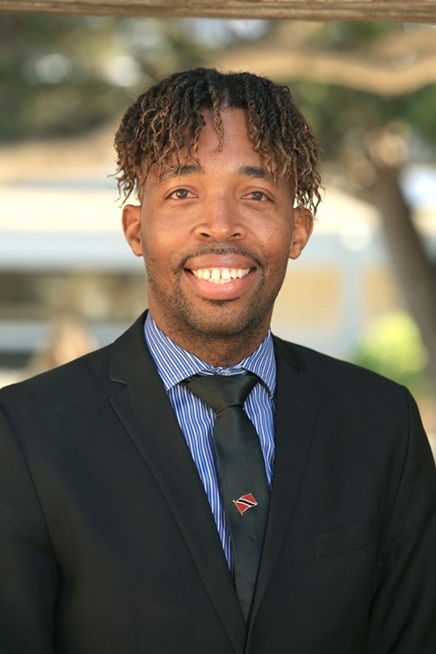How I Got Hired: Translator, United Nations
| by Amy Fruchter CI ’18
Alum Amy Fruchter shares how her experiences at the Middlebury Institute and constructive feedback from her professors helped her become a translator at the United Nations.

It’s an achievement and honor to be accepted to one PhD program—never mind three.
Translation student Kareem Tinto has been accepted into three leading programs: Kent State University, the leading doctoral program in translation studies in the United States, and PhD programs in Spanish and Portuguese at the University of Wisconsin at Madison and Emory University in Atlanta.
A native of Trinidad and Tobago, Kareem received a BA in Spanish at the University of the West Indies, St. Augustine Campus. As a Fulbright recipient, he received four offers to do graduate study in translation and interpreting in the United States: Kent State University, University of Illinois Urbana-Champaign, Wake Forest University, and the Middlebury Institute.
He credits a Fulbright program specialist for leading him to Monterey, a decision he has never regretted.
“The Middlebury Institute has offered me rigorous, professionally based training that has not only taken me out of my comfort zone from day one but also has given me a wealth of transferable skills on a cross-section of interdisciplinary topics of varying difficulties, which have propelled me into thinking more critically about my future,” says Tinto.
“The fact that three of the country’s top PhD programs have accepted Kareem is not only a testament to his achievements but also a signal to students that a degree from the Institute can prepare them to continue their graduate education for a possible career in academia,” says Dr. George Henson, visiting professor of Spanish/English translation.
Looking toward his future, Kareem says, “My long-term goal is to be a professor and translator of Hispanic and Lusophone cultures.”
Kareem is still waiting for decisions from the University of Pennsylvania, Binghamton University, and Johns Hopkins University. As to which he will choose, he says, “We’ll see. I haven’t made up my mind, but it’s exciting to have so many good options.”
Master of Arts in Translation; Translation and Interpretation; Conference Interpretation
| by Amy Fruchter CI ’18
Alum Amy Fruchter shares how her experiences at the Middlebury Institute and constructive feedback from her professors helped her become a translator at the United Nations.
| by Matthew Jennings
How recent Middlebury Institute graduate Gustavo Mercado MACI ’19 passed one of the United Nation’s most difficult interpretation examinations.
| by Sierra Abukins
As an interpreter at the Olympics, alum and professor Stephanie Cooper got a front seat to the biggest moment in many athletes’ lives, allowing them to express themselves in their mother tongues.